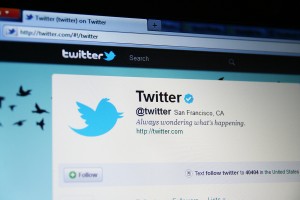 By Brian Moore
By Brian Moore
Over the past several years, companies of all sizes have turned to social media sites such as Facebook and Twitter to promote their goods and services. While one or more employees may be tasked with creating and/or continuing a social media campaign on behalf of the company, what happens when an employee successfully secures thousands of Twitter followers for a company and then leaves for greener pastures? Who does the Twitter account and associated followers belong to? This is a real gray area and another example of how advances in technology—and changes in the way we use technology—have progressed too quickly for the law to keep pace.
A recent lawsuit may help clear things up eventually. In PhoneDog v. Kravitz, Kravitz, a former employee of PhoneDog, developed an online presence for the company using, among other things, the Twitter handle supplied to him by the company known as @PhoneDog_Noah. Kravitz successfully obtained 17,000 followers for the company and then eventually quit. He changed his Twitter handle to @noahkravitz and managed to take the 17,000 followers with him. The company sued, claiming the list of followers is akin to a customer or client list and, thus, is entitled to legal protection. The counter to this argument, of course, is that followers are more akin to fans than clients, and the list doesn’t belong to anybody. In any event, the court recently denied Kravitz’s motion to dismiss. For now, the case will proceed, and it may be some time before any final decision is rendered.
Notwithstanding the lack of legal authority, there are measures that a company can take to protect its social media presence. For instance, employers can best safeguard their interests through strong contract or policy language stating that the social media account is being developed for the employer and remains at all times the property of the employer. The contract or policy should also specify that all content developed through the social media account is the intellectual property of the employer. Employees should be required to read and sign any such policy that is issued.
Employers should also make sure that, to the extent possible, they register social media accounts in the company’s name, not an individual employee’s.
Finally, it would also be a good idea to make sure that more than one employee has access to an employer’s social media account. That way, if an authorized user of the account quits or is fired, the employer can change the account password to prevent future unauthorized use by the former employee.
About the Author
 Brian Moore is a partner in the Labor and Employment Law Department of Dinsmore & Shohl LLP, representing employers in all aspects of labor and employment law. The author of the West Virginia Labor & Employment Law Blog (www.wvlaborandemploymentlaw.com), he has obtained an AV Peer Review rating in Martindale-Hubbell, has been named a Rising Star by Super Lawyers Magazine and is a 2012 graduate of Leadership West Virginia. He serves on the board of directors of the Putnam County Chamber of Commerce and is the president-elect of Mountain State Rotary E-Club.
Brian Moore is a partner in the Labor and Employment Law Department of Dinsmore & Shohl LLP, representing employers in all aspects of labor and employment law. The author of the West Virginia Labor & Employment Law Blog (www.wvlaborandemploymentlaw.com), he has obtained an AV Peer Review rating in Martindale-Hubbell, has been named a Rising Star by Super Lawyers Magazine and is a 2012 graduate of Leadership West Virginia. He serves on the board of directors of the Putnam County Chamber of Commerce and is the president-elect of Mountain State Rotary E-Club.








